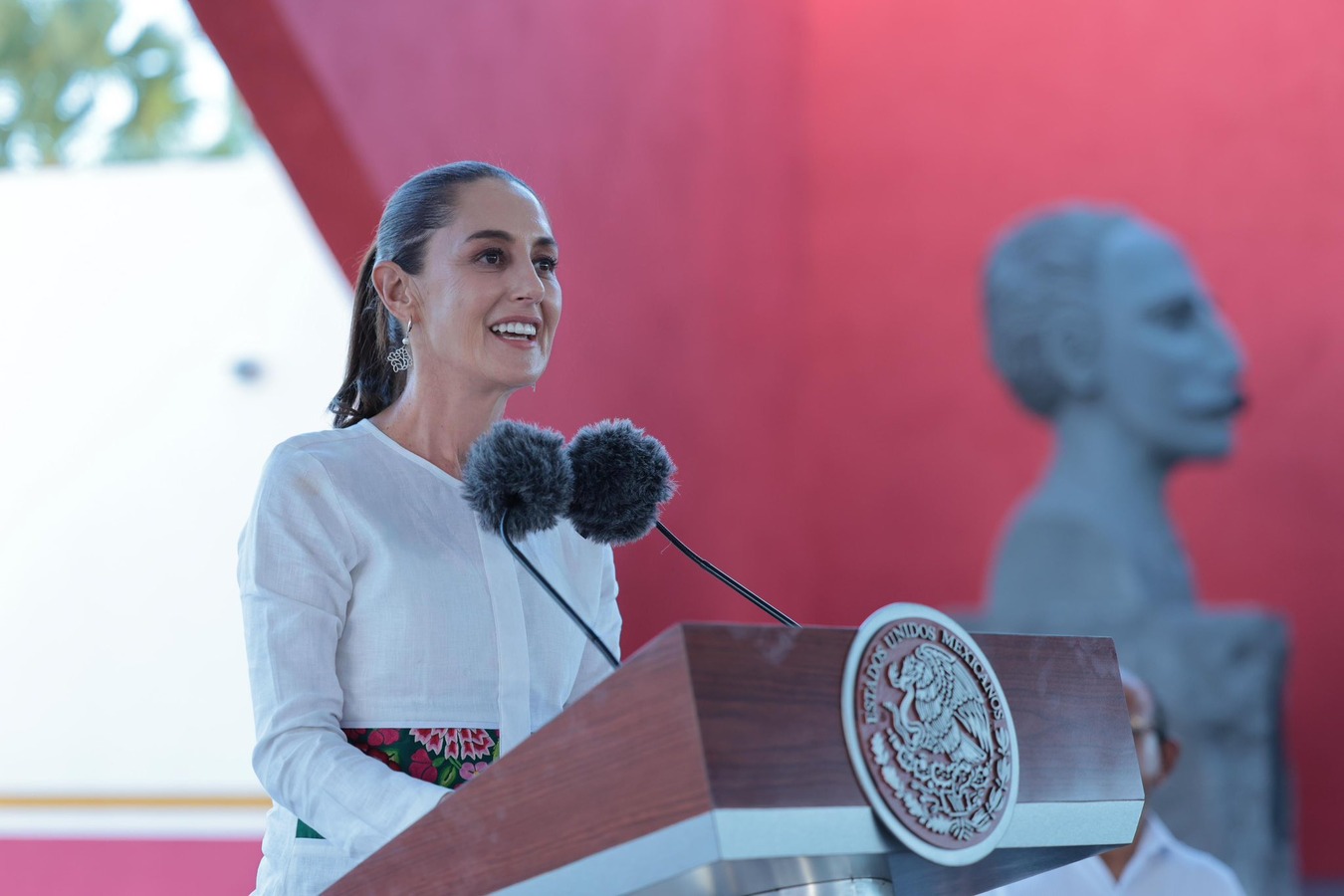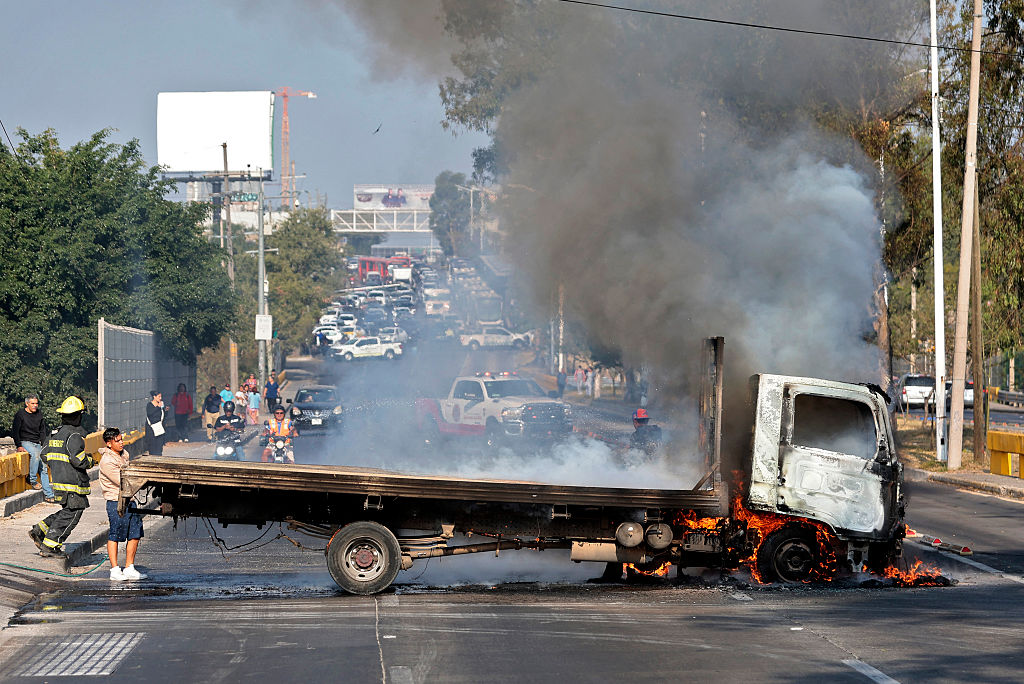Mexico City: Mexico in the Global Economy
Mexico City: Mexico in the Global Economy
Just as the Mexican Senate was approving a groundbreaking federal pension reform law, the Americas Society and Council of the Americas (AS/COA) held its 2007 Mexico City Conference to look at Mexico’s role in the global economy. With over 180 private and public sector leaders in attendance, the conference, hosted in association with the Mexican Business Council of Foreign Trade Investment and Technology (COMCE), highlighted key reforms—including labor, energy, and fiscal reforms—to improve Mexico’s competitiveness.
Introduction
Just as the Mexican Senate was approving a groundbreaking federal pension reform law, the Americas Society and Council of the Americas (AS/COA) held its 2007 Mexico City Conference to look at Mexico’s role in the global economy. With over 180 private and public sector leaders in attendance, the conference, hosted in association with the Mexican Business Council of Foreign Trade Investment and Technology (COMCE), highlighted key reforms—including labor, energy, and fiscal reforms—to improve Mexico’s competitiveness.
“Mexico in the Global Economy” featured several keynote speakers along with three panels. Keynote speakers included:
- Thomas F. McLarty, III, President, Kissinger McLarty Associates
- Eduardo Medina Mora, Attorney General of Mexico
- Roberto Newell, Director, IMCO
- Fernando Quiroz, CEO Corporate & Investment Banking Latin America, Citigroup
- Luis Téllez, Secretary of Communications and Transportation
- Alejandro Werner, Under Secretary of Finance and Public Credit
The conference panelists included:
- Gerardo Aranda, Congressman from the National Action Party (PAN)
- Martha Bejar, President of Latin America and the Caribbean, Nortel Networks Corporation
- Eugenio Clariond, President of North American Business Committee (Mexico)
- Pedro Joaquín Coldwell, Senator from the Institutional Revolutionary Party (PRI)
- Alberto Jones Tamayo, Director, Moody’s Mexico
- Jorge Mariscal, Investment Research Director, The Rohatyn Group
- Olivier Lazare, Vice President of New Business Development, Shell International EP
- Jesus Ortega, Former Senator from the Party of the Democratic Revolution (PRD)
- Oscar Schmidt, Head of Latin America, MetLife
- Mark Walker, Cleary, Gottlieb, Steen & Hamilton LLP
The Mexico City Conference is part of the AS/COA’s signature 2007 Latin American Cities Conferences. This summary provides an overview of the main themes addressed during the conference.
On March 10, President Calderón celebrated his first 100 days in office, and a few weeks later, he celebrated one of his first major victories—Senate approval of the federal pension reform law. This structural reform, the first in over a decade, privatizes much of the public pension system and is a positive sign of the Calderón administration’s ability to work with Congress. Promoting cross-border cooperation, President Calderón welcomed U.S. President George W. Bush on March 14 to discuss bilateral issues such as immigration and security.
The Mexico City Conference focused on a variety of issues that are important for Mexico’s growth in the global economy. In bringing together key government ministers and private sector leaders, participants heard first-hand analysis on the country’s economic outlook, infrastructure development, political environment, and post-North American Free Trade Agreement (NAFTA) opportunities for collaboration.
Economic and financial outlook
Mexico’s economy is forecast to grow 3.5 percent in 2007, but analysts worry that the sluggish U.S. market may slow growth, particularly for Mexican auto, textile, and electrical equipment producers. Since NAFTA entered into force in 1994, trade has more than tripled between the U.S. and Mexico. Banking reforms have further helped to attract greater FDI. However, Díez Morodo and Jones Tamayo acknowledged that Mexico’s exports and ability to attract FDI have slowed in the past two years.
Fiscal reform, particularly the Senate’s pension reform, was another point of discussion. Facing a pension liability of 55 percent of GDP, Mexican lawmakers recently moved to privatize state pensions. Alejandro Werner and Jones Tamayo agreed that the current pension system threatens the country with a future deficit. The reforms will diversify the government’s income and stabilize funding for other social programs.
Other recent reforms have improved the competitiveness of Mexican businesses and increased access to finance. Fernando Quiroz observed that these reforms have helped to solidify Mexico’s position in global capital markets, particularly as a hub for Latin American funds. Other speakers highlighted Mexico’s management of public debt and its innovation of new financial instruments. In his concluding remarks, Eugenio Clariond noted that increased competitiveness hinges upon improving public management, attracting higher private investment in infrastructure, addressing the existence of public and private monopolies, and promoting greater competition. Stressing private sector initiative, Oscar Schmidt urged Mexican officials to diversify the tax base.
Development and infrastructure
Over the last 20 years, the Mexican government has dramatically improved its regulatory capacity. At the same time, its network of airports, railroads, and highways has received greater private sector investment, but to bolster competitiveness, these networks need further investment and structural reform. According to Secretary Luis Téllez, Mexico has upgraded its airports to cope with increased traffic, but authorities should shift more commercial traffic to the railways and relieve pressure on the nation’s roads. Considerable investments have been made to increase the capacity of strategic ports, such as Manzanillo and Lázaro Cárdenas. However, Téllez notes, Mexico’s strategic challenges are to better connect its ports, main cities, and major border, improve the highway network linking rural areas to cities, and promote competition in the telecommunications sector.
Political Environment and Rule of Law
The lack of political consensus on reform measures was another subject of debate. According to Robert Newell, Mexico enjoys a multi-party democracy, but the country will have to recover its “reforming spirit” to achieve lasting benefits. A political consensus is necessary to address the continuing challenges of fiscal reform (notably tax evasion), poverty, insecurity, drug trafficking, and monopoly practices. Jesus Ortega suggested that Mexico should enhance poverty reduction programs, which, in turn, improve internal market consumption, generate employment, and diminish social radicalization.
The rule of law and public security is equally important for sustaining democratic governance and attracting FDI. Eduardo Medina Mora briefed participants on the efforts of the Procuraduría General de la República to fight drug trafficking, organized crime, and terrorism. He explained President Calderón’s proposals for judicial reform, emphasizing that a credible judiciary is necessary to rebuild a society’s confidence in civic institutions.
Mexico beyond NAFTA
In their discussion of NAFTA, presenters focused on job creation, immigration, and energy security. Reflecting U.S. Democratic Party concerns over a pilot project to allow Mexican trucks greater access to U.S. highways, panelists emphasized that both countries share a responsibility for creating jobs and pursuing sound macroeconomic policies. Second, presenters stressed that immigration reforms in Mexico and the U.S. are not only necessary, but must also take into account each country’s economic needs and realities.
Energy security was also a key topic. Olivier Lazare suggested that current development needs in this sector offer regional partners the opportunity to improve technology use and access and build a sustainable, environmentally-friendly approach. Politically, cross-border energy partnerships provide important areas for cooperation.








